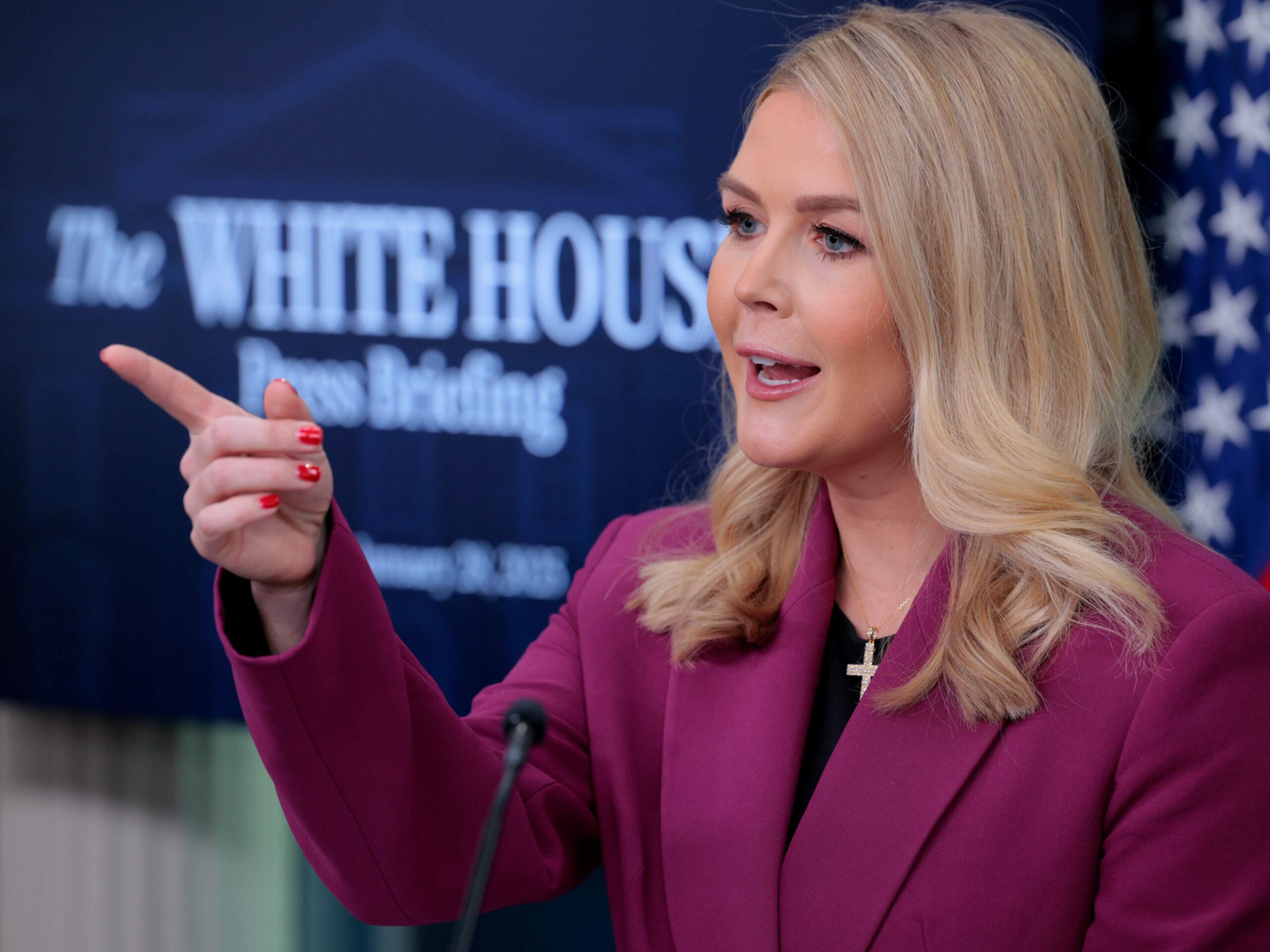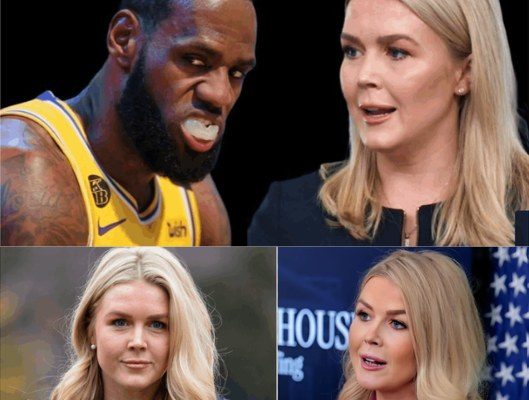When LeBron James called Karoline Leavitt “𝙆𝙆𝙆 𝘽𝘼𝙍𝘽𝙄𝙀,” no one expected her to come out unscathed. The insult was fire-baited, deliberate, and perfectly timed to detonate across every feed, every late-night monologue, every anonymous comment thread with a keyboard and a grudge. Two words—𝙆𝙆𝙆 and Barbie—juxtaposed to evoke maximum venom. One tied to violence and terror. The other to plastic and mockery. Together? It was personal, racial, cultural, and misogynistic—all in one punch.

It worked. At least for a moment.
Her name trended for the wrong reasons. Clips circulated. Commentators speculated. Opponents smirked. Supporters froze. And Karoline? She said nothing. No tweet. No retort. No press call or “exclusive sit-down.” That silence lasted just long enough for people to start wondering if she was stalling—or strategizing.
They didn’t have to wonder for long.
When she did answer, it wasn’t loud. It wasn’t angry. It didn’t even include his name. It was just a single post—seventeen words, flat and cold in black text on a white background:
“My family fought to end slavery. Yours came here from Jamaica in the 1930s. Let’s talk facts.”
That was it. No hashtags. No emoji. No microphone-grabbing drama. Just that. And yet, it felt like the sound of a glass wall shattering. Because somewhere in the space between those seventeen words and the collective silence that followed… something cracked.
For the first time in a long time, someone had counterpunched LeBron—and done it with paperwork instead of pride.
The public didn’t gasp. They stalled. Journalists paused mid-draft. Political commentators adjusted scripts. On air, some stumbled. Others just moved on. Because no one had expected a calm response to cut that deep.
The facts were true. That was the first problem. Karoline’s family history was well-documented—Northern abolitionists, multiple generations back. LeBron’s Jamaican heritage was public knowledge. She didn’t invent a counter-attack. She simply stated something that had always been there—but hadn’t been said out loud.
What she didn’t say mattered more than what she did.
She didn’t demand an apology. She didn’t scream. She didn’t remind people how sexist or racist or inflammatory his comment had been. Because the truth is, she didn’t have to. That work had already been done for her—by him.

Her seventeen words said something terrifying: You just lost control of the narrative—and I won’t even raise my voice to take it back.
There’s something dangerous about that kind of calm.
Behind the scenes, her team had begged her to go bigger. One aide had even suggested a full press statement. “He just gave us a headline—we need to make it hurt,” they said.
Karoline refused. She leaned in, not out.
“What he gave me wasn’t a headline,” she said. “It was a mirror. I just held it up.”
It wasn’t the first time someone had tried to reduce her with a label. And it wasn’t the first time she chose not to let it stick.
She had learned years ago—quietly, personally—that names only hold power if you accept the room they’re thrown from.
There was a moment in high school when a boy had called her “Tea Party Barbie.” She hadn’t even understood the insult at the time. She went home confused, told her father, and asked if it was true. He looked at her, paused, and said:
“They’re not laughing at who you are. They’re laughing at who they’re afraid you might become.”
That night came back to her now. Not in a wave—but like a whisper. Like a page being turned inside her chest.
